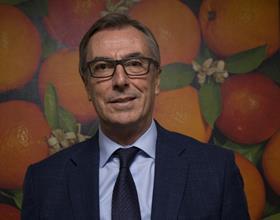
Manuel Arrufat, the outgoing president of Spain’s Citrus Management Committee (CGC), has fired a parting shot at the newly created World Citrus Organisation (WCO) ahead of his departure on 31 December.
In what has become an increasingly personal and acrimonious battle between different factions of Spain’s citrus industry, Arrufat wrote an opinion piece for today’s Valencia Fruits in which he questions the motives of South Africa’s Citrus Growers’ Association (CGA) – whose CEO Justin Chadwick is one of the two main architects of the WCO, together with Ailimpo’s José Antonio García – and appears to suggest that the Spanish government and the European Union are acting out of political expediency in supporting the initiative.
“[The WCO] is presented as an organisation that goes beyond good intentions…helping producer countries to identify and take better advantage of business opportunities for the collective benefit of the sector,” he wrote.
“What we do know… is that South African exporters had two clear priorities. Before launching the WCO, on the one hand, they expressed the need to resolve the technical dispute with the EU in phytosanitary matters... On the other, their second major objective was to ‘improve relations with Spain’ in order to – as they confessed – ‘facilitate dialogue between the EU and South Africa’. Now we know who they looked for and used to achieve this: José Antonio García, director of Ailimpo.”
Arrufat also questioned the motives of the Spanish government and the European Union in backing the WCO, claiming that the new entity would merely provide a stick with which to beat the sector when things went wrong in future.
“How easy it will be for politicians and community legislators to have a ‘culprit’, a global citrus organisation, when we return – because we will return – to a Spanish citrus campaign of 8m tonnes accompanied by similar increases in Morocco, Egypt or Turkey,” he said.
“Can you imagine what politicians would do if they had that scapegoat? They would tell us: ‘You have the forum, you know the problem, come to an agreement. Share information and self-regulate, be generous.”
Arrufat’s comments come in response to an article published by Valencia Fruits on Monday in which García said the CGC’s refusal to back the new initiative showed “a lack of vision of the future and awareness of the realities of a globalised world”.
The WCO is the latest illustration of fruit producers from competing countries opting to work together in order to try to increase global consumption. One of the most successful examples is the World Avocado Organization, whose first European marketing campaign in 2018 is credited with helping to lift sales by 35 per cent.
However, the CGC’s stance indicates that it fears it has more to lose than to gain from signing up to the WCO, both from a commercial and phytosanitary perspective. And judging by its appraisal of its South African rivals it will not be joining any time soon.
“Relationships and projects are built from trust and with the CGA, so far, this shines by its absence,” Arrufat said. “Through their actions, with their words, working as we work in the counterseason with South African fruit (and other areas of the southern hemisphere) they do not inspire us the same ‘constructive’ spirit as Ailimpo.”



